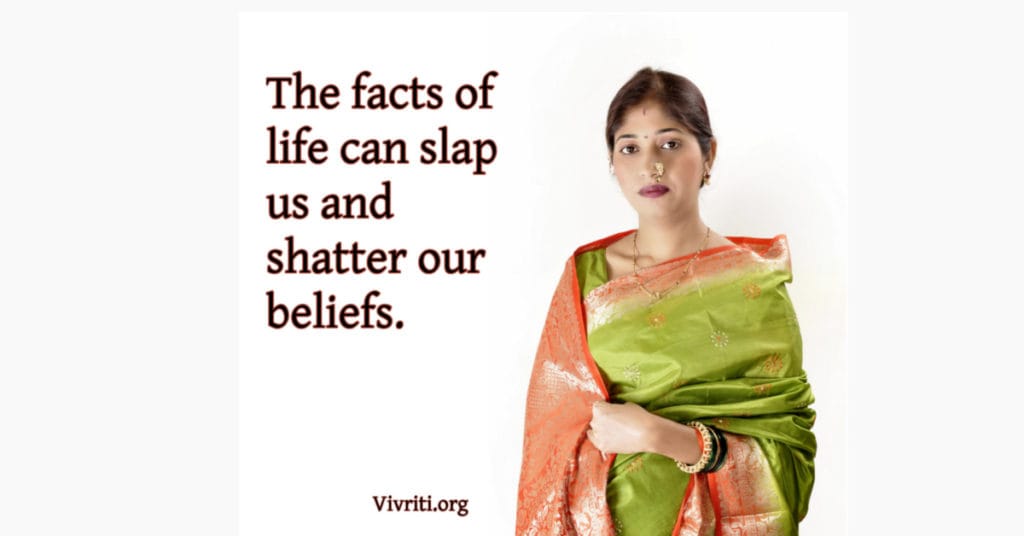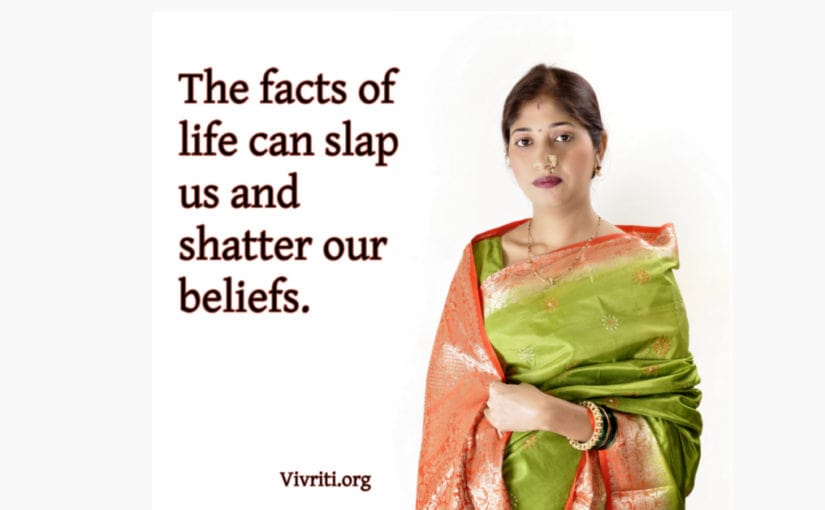 “…Many of our consoling beliefs become a source of anguish when the real circumstances of life are out-of-sync with our expectations. The facts of life can slap us and shatter our beliefs. If we try changing the way we put on a coat using the secondary arm first, we expose the power of unconscious repetition. Our habits operate blindly and limit the use of our sensitivities and faculties.
“…Many of our consoling beliefs become a source of anguish when the real circumstances of life are out-of-sync with our expectations. The facts of life can slap us and shatter our beliefs. If we try changing the way we put on a coat using the secondary arm first, we expose the power of unconscious repetition. Our habits operate blindly and limit the use of our sensitivities and faculties.
 On the one hand, habits can liberate us from thinking about something redundant. The more a musician unconsciously knows the instrument, the more his mind can explore an abundance of choices in order to create. However, much of life and human interaction are different from playing an instrument with strings and keys always in the same spot. Constantly changing events suggest that we should not seek to live on autopilot. We do not let go of bad habits unconsciously. We cannot make a habit of breaking habits. When we consign a response or belief into a thoughtless mechanical routine, it takes conscious effort to reject it, even if we only want to replace it with a new and better habit. A racist does not have to strain to think the way he does, it happens automatically. To escape bigotry, the racist must consciously choose to do something other than obey the habit.”
On the one hand, habits can liberate us from thinking about something redundant. The more a musician unconsciously knows the instrument, the more his mind can explore an abundance of choices in order to create. However, much of life and human interaction are different from playing an instrument with strings and keys always in the same spot. Constantly changing events suggest that we should not seek to live on autopilot. We do not let go of bad habits unconsciously. We cannot make a habit of breaking habits. When we consign a response or belief into a thoughtless mechanical routine, it takes conscious effort to reject it, even if we only want to replace it with a new and better habit. A racist does not have to strain to think the way he does, it happens automatically. To escape bigotry, the racist must consciously choose to do something other than obey the habit.”
“…We cannot make a habit of breaking habits. When we consign a response or belief into a thoughtless mechanical routine, it takes conscious effort to reject it, even if we only want to replace it with a new and better habit. A racist does not have to strain to think the way he does, it happens automatically. To escape bigotry, the racist must consciously choose to do something other than obey the habit.”
Excerpts from The Relevance of Kabir
